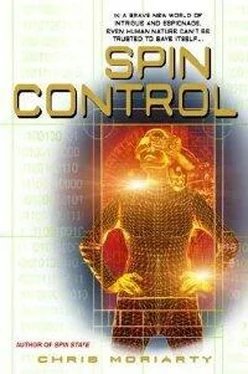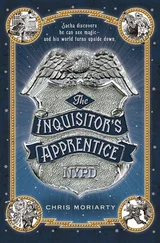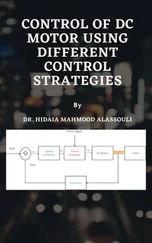“Like what?”
Moshe gave him a level stare. “Like Absalom.”
“And if I give you Absalom?”
“Political asylum. Guaranteed. For you and Arkasha. In Israel, not some corporate black hole where they’ll pull your fingernails out just to make extra sure you’re telling them everything.”
“I don’t know if—”
“It’s a take-it-or-leave-it deal, Arkady. And it’s all I got. So do yourself a favor and take the time to think about it.”
“How long do I have?”
“Until the auction. Oh, and did I mention Korchow was going to be there? What’s the matter, Arkady? You look a little nervous. Not so eager to see your old friends again?”
While the human species, as a mechanical going concern, has become organized into a social whole, the motivation that keeps it going has not undergone the same thoroughgoing reorganization, but continues to be in a great measure individualistic in type. Social ends are achieved through appeal to individual selfish instincts. Our present industrial system operates by way of a mutually selfish bargain, in which each party to the transaction seeks his own advantage, regardless of the gain or loss to the species as a whole. The system works tolerably well… at least so it seems to those accustomed to the system.
But…the future evolution of our race may proceed in a direction that shall ultimately ease the conflict between man and man, and between man and the world at large.
—ALFRED J. LOTKA (1924)
The first sign of trouble on Novalis was the detailed volatiles inventory. Theoretically, the nonsensical DVI numbers were a purely scientific issue. In practice, however, the DVI crisis turned out to be less about science than about culture and social skills. And the ensuing flurry of questions, arguments, and recriminations made Arkady begin to worry that the Novalis survey might turn into the kind of spectacular disaster that provided fodder for mission-planning manuals.
The DVI was Aurelia’s baby—Aurelia the rock doctor, not Aurelia the people doctor. Both Aurelias had become Arkady’s fast friends before he’d even scrubbed away the last remnants of freezerburn. He’d worked with other Aurelias before, and the Aurelias on the Novalis mission had their geneline’s typical character and attitudes. They worked hard, even by Syndicate standards. They gave short shrift to fools and hypocrites. They expected perfection from themselves and others. They were tactless, abrasive, aggressive, impatient, and generally impossible if you got in their way. They were also loyal, affectionate, and profoundly kind if you were lucky enough to have earned their friendship.
As often happened on new assignments, Arkady and the current pair of Aurelias benefited from past goodwill. Arkady had been close friends with other Aurelias and was hoping to be equally close to the new A-12 workpair. The Aurelias had fond memories of past Arkadys and were primed to make friends with their new A-11 colleagues. Arkady slipped into the ready-made friendship as comfortably as a duck hopping into a familiar pond…which was a good thing considering the distinctly uncomfortable nature of what should have been a much closer friendship: the one with Arkasha.
Not that he had a lot of time to think about that. Everyone was racing so frantically to get the prelanding work done before the ship fell into orbit around Novalis that they barely had time to sleep and eat, let alone worry about their social lives.
The DVI was central. The count on free volatiles would tell them whether the planet was geophysically capable of supporting plant and animal life. It was the DVI more than any other single set of numbers that the Aziz A’s would be looking at when they decided whether or not to greenlight the mission and transfer the team to the landing module. And when the DVI went south, so did all hopes of making planetfall on schedule.
The crux of the problem was Bella—and, in a more general way, the very presence of Aziz and Motai constructs on what was supposed to be a purely scientific mission.
The Novalis mission was a one-shot sprint-style expedition: fast and cheap, but by definition shorthanded. Each team member had to be capable of assisting with, or if necessary taking over, mission-critical tasks outside their normal areas of specialty. Indeed, one of the main arguments for including the Aziz A’s and the Motai B’s instead of four more scientists was that they had the generalized practical expertise to take up the slack for the life-sciences teams.
Things hadn’t quite worked out that way.
The two Aziz A’s, with all the goodwill in the world, lacked the training and technical skills even to serve as lab assistants. And the Bellas…well, the Bellas were turning out to be complicated.
As Arkady had predicted, they were quite easy to tell apart despite their uncanny physical resemblance. By the second day out of cold sleep, Arkady had privately dubbed them “Shy Bella” and “Bossy Bella.” Shy Bella barely spoke unless spoken to, and when she did screw up the courage to get a few words out you had to strain to hear them. Arkasha and Laid-back Ahmed both claimed she had a wicked sense of humor, but they were the only two crewmembers besides her pairmate that she was comfortable enough to joke with. And frankly Arkady wasn’t sure how comfortable she was with her pairmate.
By Syndicate standards, Bella’s diffidence verged on social deviance. Arkady had wondered how a construct with such a personality fault had made it through the MotaiSyndicate’s famously stringent culls…until he saw her at work in the orbsilk garden. At that point the mystery of why she’d been spared culling gave way to the mystery of why such a supremely gifted silk thrower had been exiled to the social backwater of a long-term survey mission. No matter. Whatever the reason, at least on this trip they wouldn’t have to worry about defective solar sails or hab ring seal blowouts.
Bella’s pairmate, on the other hand, could have used a healthy dose of shyness. Bossy Bella was that rare thing in Syndicate society, and space settlements generally: a truly rude person. Watching her in action, Arkady could only conclude that socialization in MotaiSyndicate crèches involved a lot fewer lectures about consideration, politeness, and Lotka-Wilsonist ideals, and a lot more of the aggressive jockeying for social dominance that was supposed to have vanished with the abolition of class oppression and private genetic property. He got the distinct impression that Bossy Bella was used to reigning over her fellow Motai B’s from the top of some primitive pecking order and was now working out just how far she could push her bullying in a group of science-tracked A’s who weren’t used to taking orders or deferring to anyone.
So far Bella’s pushing had worked pretty well. By-the-Book Ahmed liked her. Laid-back Ahmed tolerated her. The Rostov and Banerjee A’s were either blissfully blind to social nuance or too busy to notice.
But now Bella had let her social jockeying bleed into Aurelia’s DVI. And Aurelia, being an Aurelia, was out for blood.
Technically, what modern Syndicate ecophysicists did wasn’t terra-forming at all. Certainly it had little to do with the sledgehammer-style “planetary engineering” that early human terraformers had attempted when they hurled the first unmanned seed probes out of their solar system.
Most Evacuation-era terraforming starts had gone belly-up, leaving nothing behind but impact-scarred wreckage interesting only to historians. But where luck and skill had been with the original terraformers, their remote seeders had created impact craters in which the precious free volatiles collected and life could eventually thrive. The original terraformers had called these chains of isolated island ecosystems “oases.” Syndicate terraformers, none of whom had ever seen Earth’s oases, just called them “potholes.”
Читать дальше












